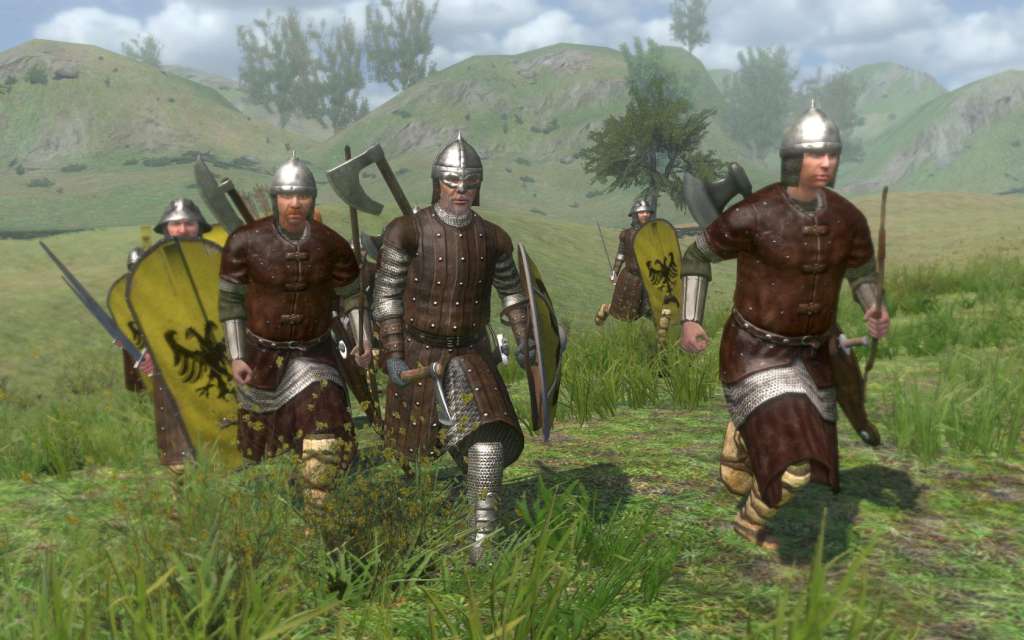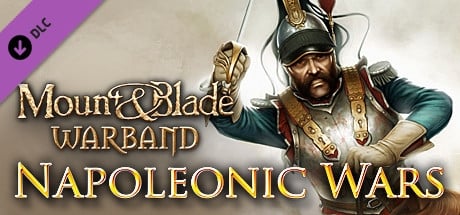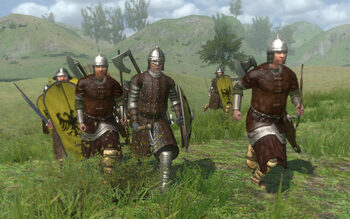- Mount & Blade Warband Mods
- Mount Saint Mary College
- Mount And Blade Xbox 1
- Mount Saint Mary's Portal
- Mount & Blade Warband Review
Another word for mount. Find more ways to say mount, along with related words, antonyms and example phrases at Thesaurus.com, the world's most trusted free thesaurus. Description Mount & Blade: Warband is the iconic entry in the series that brought medieval battlefields to life with its realistic mounted combat and detailed fighting system. Free-form sandbox gameplay. You are free to go anywhere in a world with more than a hundred.
Mount & Blade: Warband - Viking Conquest From the creators of the popular “ Brytenwalda” mod, “ Viking Conquest” is a brand new DLC for Mount & Blade Warband! This single and multi player DLC brings Mount & Blade to historical Dark Age Britain, complemented by authentic scenes and cultures. Mount & Blade: With Fire & Sword.

- Mount Royal USA, 'The Venison and Game Meats Connection', is committed to insuring your total satisfaction with all of our game meat products. Every attempt is made to deal directly with farms that not only control the feed programs for their animals but also the processing and butchering.
- Mount&Blade Warband.egg 8 years 2636 MB 3 1 by x-scar Mount and Blade Trilogi.iso 7 years 1872 MB 3 1 Mount and Blade - Warband + DLC's 1.172hotfix.rar 3 years 2675 MB 4 0 Mount.and.Blade-Ogniem.i.Mieczem-PL-MDS-noCRACK 9 years 1912 MB 1 3 Mount & Blade II Bannerlord.rar 8 months 32 GB 4 0 Mount&Blade - Warband (RUS,ENG,v1.153) upd25.05.
 Available for order
Available for order Mount & Blade: Warband is the eagerly anticipated sole expansion to the original PC role-playing game (RPG), Mount & Blade. In a land torn asunder by incessant warfare, it is time to assemble your own band of hardened warriors and enter the fray. Lead your men into battle, expand your realm, and claim the ultimate prize: the throne of Calradia!
Mount & Blade Warband Mods
Napoleonic Wars is a multiplayer DLC expansion pack for Mount & Blade: Warband featuring the final years of the French Empire’s struggle to remain the dominant power of Western Europe in the early 19th century. Experience the thrill of Napoleonic warfare first hand - Take part in the invasion of Russia or fight the French at Waterloo from the front line! Side with one of the five supreme European powers from the era and choose from more than 220 unique units to play. Fight on battlefields across Europe in of one of the most accurate and detailed Napoleonic war games ever!
Mount Saint Mary College
From the creators of the popular “Brytenwalda” mod, “Viking Conquest” is a brand new DLC for Mount & Blade Warband! This single and multi player DLC brings Mount & Blade to historical Dark Age Britain, complemented by authentic scenes and cultures. The DLC features a story mode with a complex plot, where choices have real consequences, as well as a standard sandbox mode in an all new setting, with expanded options and controls. Online battling also takes on its own flavour, with special modes like Coastal Assault and Warlord.
 Reviews(0)
Reviews(0) Europa universalis iv: muslim ships unit pack. Mounting is a process by which the operating systemmakes files and directories on a storage device(such as hard drive, CD-ROM, or network share)available for users to access via the computer's file system.[1]
In general, the process of mounting comprises the operating system acquiring access to the storage medium; recognizing, reading, and processing file system structure and metadata on it before registering them to the virtual file system (VFS) component.
The location in VFS that the newly-mounted medium was registered is called mount point; when the mounting process is completed,the user can access files and directories on the medium from there.
An opposite process of mounting is called unmounting, in which the operating system cuts off all user access to files and directories on the mount point, writes the remaining queue of user data to the storage device, refreshes file system metadata, then relinquishes access to the device, making the storage device safe for removal.
Normally, when the computer is shutting down, every mounted storage will undergo an unmounting process to ensure that all queued data got written, and to preserve integrity of file system structure on the media.
Overview[edit]
A mount point is a location in the partition used as a root filesystem. Many different types of storage exist, including magnetic, magneto-optical, optical, and semiconductor (solid-state) drives. As of 2013, magnetic media are still the most common and are available as hard disk drives and, less frequently, floppy disks. Before any of them can be used for storage, the means by which information is read and written must be organized and knowledge of this must be available to the operating system. The organization is called a filesystem. Each different filesystem provides the host operating system with metadata so that it knows how to read and write data. When the medium (or media, when the filesystem is a volume filesystem as in RAID arrays) is mounted, these metadata are read by the operating system so that it can use the storage.[2][3]
Unix-like operating systems often include software and tools that assist in the mounting process and provide it new functionality. Some of these strategies have been coined 'auto-mounting' as a reflection of their purpose.
In many situations, file systems other than the root need to be available as soon as the operating system has booted. All Unix-like systems therefore provide a facility for mounting file systems at boot time. System administrators define these file systems in the configuration file fstab (vfstab in Solaris), which also indicates options and mount points. In some situations, there is no need to mount certain file systems at boot time, although their use may be desired thereafter. There are some utilities for Unix-like systems that allow the mounting of predefined file systems upon demand.
Removable media[edit]
Removable media have become very common with microcomputer platforms. They allow programs and data to be transferred between machines without a physical connection. Common examples include USB mass storage (flash drives), memory cards, CD-ROMs, and DVDs. Utilities have therefore been developed to detect the presence and availability of a medium and then mount that medium without any user intervention.
Some Unix-like systems have also introduced a concept called supermounting, as implemented in the Linux supermount-ng project.[4] For example, a floppy disk that has been supermounted can be physically removed from the system. Under normal circumstances, the disk should have been synchronized and then unmounted before its removal. Provided synchronization has occurred, a different disk can be inserted into the drive. The system automatically notices that the disk has changed and updates the mount point contents to reflect the new medium. Similar functionality is found on Windows machines.
An automounter will automatically mount a file system when a reference is made to the directory atop which it should be mounted. This is usually used for file systems on network servers, rather than relying on events such as the insertion of media, as would be appropriate for removable media.
Mount And Blade Xbox 1
See also[edit]
References[edit]
Mount Saint Mary's Portal
- ^'What is meant by mounting a drive?'. Indiana University-University Information Technology Services. 18 February 2011. Retrieved 5 May 2011.
- ^'Mounting definition'. linfo.org. 9 March 2006. Retrieved 27 December 2013.
- ^'What is a mount point in Linux/Unix?'. linuxnix.com. 17 September 2013. Retrieved 27 December 2013.
- ^'Supermount removable media support'. Retrieved 24 February 2016.
Mount & Blade Warband Review
